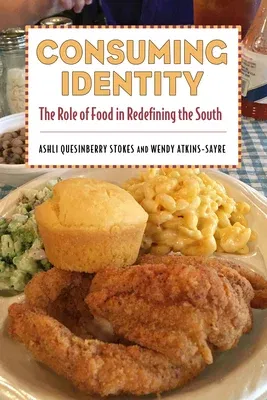Southerners love to talk food, quickly revealing likes and dislikes,
regional preferences, and their own delicious stories. Because the topic
often crosses lines of race, class, gender, and region, food supplies a
common fuel to launch discussion. Consuming Identity sifts through the
self-definitions, allegiances, and bonds made possible and strengthened
through the theme of southern foodways. The book focuses on the role
food plays in building identities, accounting for the messages food
sends about who we are, how we see ourselves, and how we see others.
While many volumes examine southern food, this one is the first to focus
on food's rhetorical qualities and the effect that it can have on
culture.
The volume examines southern food stories that speak to the identity of
the region, explain how food helps to build identities, and explore how
it enables cultural exchange. Food acts rhetorically, with what we
choose to eat and serve sending distinct messages. It also serves a
vital identity-building function, factoring heavily into our memories,
narratives, and understanding of who we are. Finally, because food and
the tales surrounding it are so important to southerners, the rhetoric
of food offers a significant and meaningful way to open up dialogue in
the region. By sharing and celebrating both foodways and the food
itself, southerners are able to revel in shared histories and
traditions. In this way individuals find a common language despite the
divisions of race and class that continue to plague the South. The rich
subject of southern fare serves up a significant starting point for
understanding the powerful rhetorical potential of all food.


